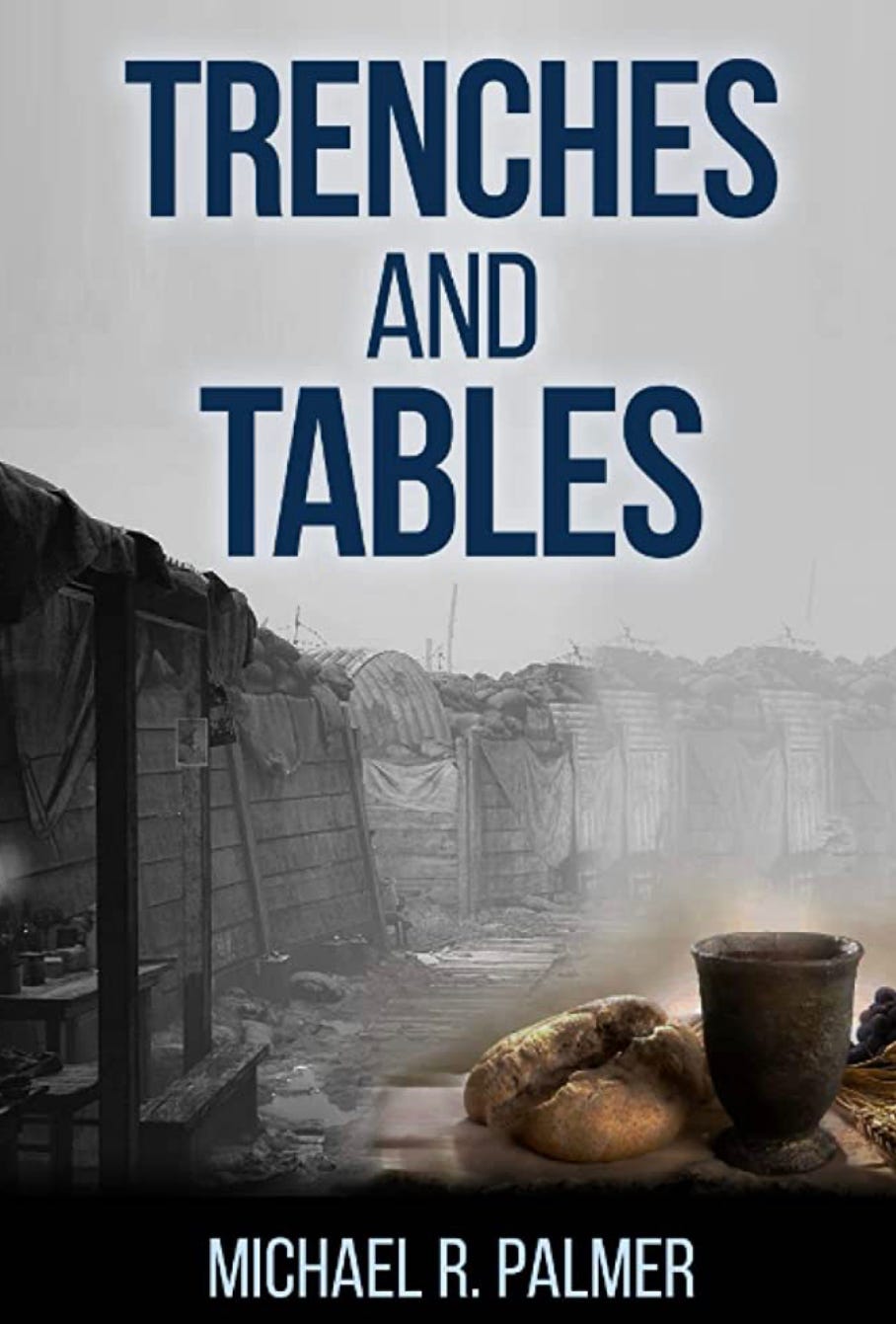Trenches and Tables
A Book Review
Michael R. Palmer has written a timely book calling us to gather around a table in charity rather than become entrenched in a constant arms race of social media frenzies and partisan politics. Early in the book Trenches and Tables Palmer states, “The church in every age is called to offer a life-giving alternative to cultures of exclusion, materialism, political power and whatever other false loyalties might be in fashion.” (p4) His is a prophetic voice calling us to follow the ideas of loving God and neighbor in a radically counter-cultural way.
Through the metaphor of the table, Palmer invites us to the life giving wonder of living in harmonious disagreement. Yes, that seems counter to everything our world and even the Church embraces in our culture of owning our enemies and crushing those with whom we disagree, but this book reminds us of the way things used to be and can be again. But we must tear down our walls and leave our weapons at the door as we approach the table.
There was a time when evangelical churches happily hosted Democrats and Republicans in the same spaces with no vitriolic fervor. I remember it well, and thankfully, have experienced that same level of trust within my local church context. But it takes a tremendous amount of trust and love to get there.
“We are seeing this play out in our churches and our politics. Where once we found ourselves able to exist in disagreement, our conflicts now require the complete removal of the other. Because we have come to see our side as righteous and the other side as vile, we now feel permission to seek victory by any means necessary and are willing to pay any cost required. After all, this is just a means to a righteous end.” (p133)
One way for us to “crawl out of our trenches” and leave weapons behind is through a Eucharistic embrace of tables as places where we meet and love one another even in disagreement. It is hard and goes against the grain of what we hear daily, but it is worth the effort to get to unity without enforced uniformity. Palmer describes it this way; “There’s something very subversive about the Eucharist. In our incompleteness, we’re drawn to something wildly risky and seemingly illogical. We are invited to something which threatens our comfort and takes away our masks. It undoes our carefully layered armor and lays down our secrets bare.” (p141)
Palmer knows firsthand about the way the partisan mob can devour those who oppose it. This book was originally slated to be published by a denominational publishing house several years ago. But because Palmer asked tough questions of political support and ideology, the book was not published. But the truth that God can turn the bad to good is that this book is more timely now in retrospect because of how much more powerful the pull to trenches has become. While it is tempting to be pessimistic, Palmer gives us a glimpse of a better path. Are we willing to walk that path? I pray we are.



